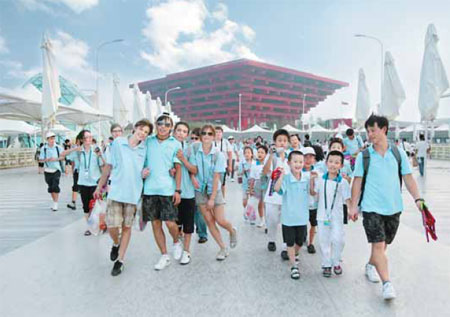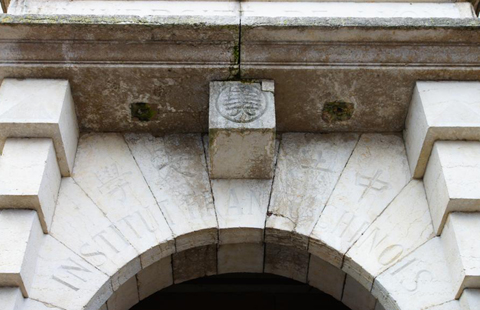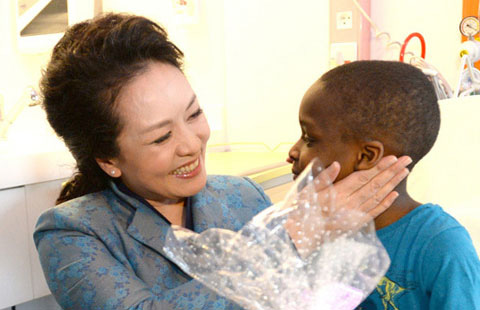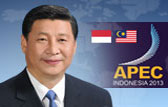French acquisitions 'like partners'
Updated: 2014-03-26 08:32
By Li Fusheng (China Daily)
Comments Print Mail Large Medium Small
Chemical giant Bluestar retains management, employees, procedures
China National Bluestar (Group) Co is forging ahead with its French subsidiaries as they operate together like partners, said Lu Xiaobao, the company's general manager.
"It is not like 'I buy you and you work for me'. Instead, we are more like partners that help each other pursue our development," said Lu when speaking about Bluestar's acquisitions.
The Chinese chemical giant acquired the France-headquartered Adisseo Group in 2006. A leading global animal nutrition feed firm, it specializes in producing methionine, vitamins and biological enzymes.
Methionine is an amino acid that helps prevent the buildup of fat in human arteries and is also used to treat depression, arthritis and chronic liver disease.
The acquisition made Bluestar the second-largest methionine producer worldwide.
The purchase came before the acquisition of another French company in early 2007.
The deal for Rhodia's organic silicon business included its patents, manufacturing equipment, distribution channels and sulphide business.
Lu said the two French subsidiaries have since performed well, with their combined sales revenue surging 60 percent and profits growing 12 times by the end of 2012.
Adisseo's Nanjing plant started operation early this year. Built with a 450-million-euro investment from Bluestar, it is the company's first facility in Asia and will meet the demands of China and surrounding countries.
"Up to now we have invested 1.25 billion euros ($1.72 billion) in them and have more than 1,900 French employees," said Lu.
As the largest Chinese investor and employer in France, he said Bluestar has made it a principle from the very beginning to set the budget and goals but does not interfere in the daily management of the two companies.
It has retained almost all of their senior managers after third-party appraisals.
"Many people ask now that you have bought them, why don't you appoint Chinese to take up the general manager posts? I told them we know clearly that they are performing better than us, especially when such factors as cultural difference are considered." And most employees have kept their jobs, said Lu, adding the two companies now employ more people than when they were acquired.
"Even when we have to downsize the staff, we have been doing our utmost to help those who are laid off to find new employment."
Lu said as a result of its efforts, Ren Jianxin, president of Bluestar's parent company ChemChina, was awarded the rank of commander in France's prestigious Legion of Honor in 2011.
Cultural diversity
As Bluestar goes global, cultural diversity has become one of its major features.
The company has introduced a range of measures to help its employees from different countries know each other. One of the most effective tools has been a summer camp for kids.
The camp at first offered to Chinese youngsters became international in 2009. Each year it hosts more than 100 children of Bluestar employees worldwide.
"Kids are culturally more sensitive. It is easier for them to accept and adapt to cultural differences.
"Exchanges among them also facilitate cultural integration of corporate employees from different countries," said Lu."Some colleagues in our newly purchased overseas companies have little idea about Bluestar except that it is a Chinese enterprise. Their kids can tell them what the company, the Chinese and China are like."
All those moves are helping win the goodwill in its overseas companies, said Lu.
He also said since their executives sit on Bluestar's board of directors, they feel they can play a role and become eager to help improve the work of the subsidiaries.
Lu said he is happy to see that because he is convinced that overseas acquisitions are not the aim but a way to learn from those who are doing a good job.
"It is not like 'I am getting rich and I buy you'. It is to borrow their experience and introduce their products to enhance our management ability and diversify our product portfolio."
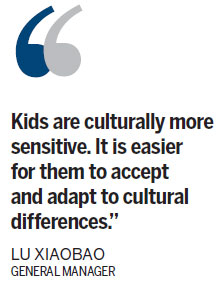
Lu said one thing Bluestar has borrowed from its overseas subsidiaries is a safety and environmental protection system.
After Bluestar's 2006 acquisition of Qenos, Australia's sole manufacturer and leading supplier of polyethylene and polymers, its safety, health and environment management system, known as SHE for short, was introduced to Bluestar's subsidiaries on the Chinese mainland.
Lu said the SHE system provides an efficient approach to manage worksite risks as well as the technical and operational integrity of facilities and equipment. "We make worker safety our top priority and the SHE system helps us achieve that goal."
Lu said he has also benefited from overseas companies' attitude to expansion.
"They are more prudent in this respect. Unlike Chinese companies, overseas companies will work out careful and accurate plans, discuss the issue with their partners and make sure the increased capacity will not result in price wars."
Calling it an important lesson for China, where many industries suffer from excessive capacity, Lu said it will make Bluestar's decision making more careful. As the company continues its global strategy, it has been improving its management by introducing best practices, hiring more professional managers and adopting more suggestions from consultancies, said Lu.
The company now has 60 production facilities and 25 research and development institutes. Its annual sales revenue now totals about 6.5 billion euros.
In addition to two French businesses and Qenos in Australia, it also owns Elkem in Norway and BlueStar Specialty Fiber in the UK.
lifusheng@chinadaily.com.cn
|
Chinese and French students visit the 2010 Shanghai World Expo as part of the summer camp sponsored by Bluestar. Provided to China Daily |
(China Daily 03/26/2014 page19)

